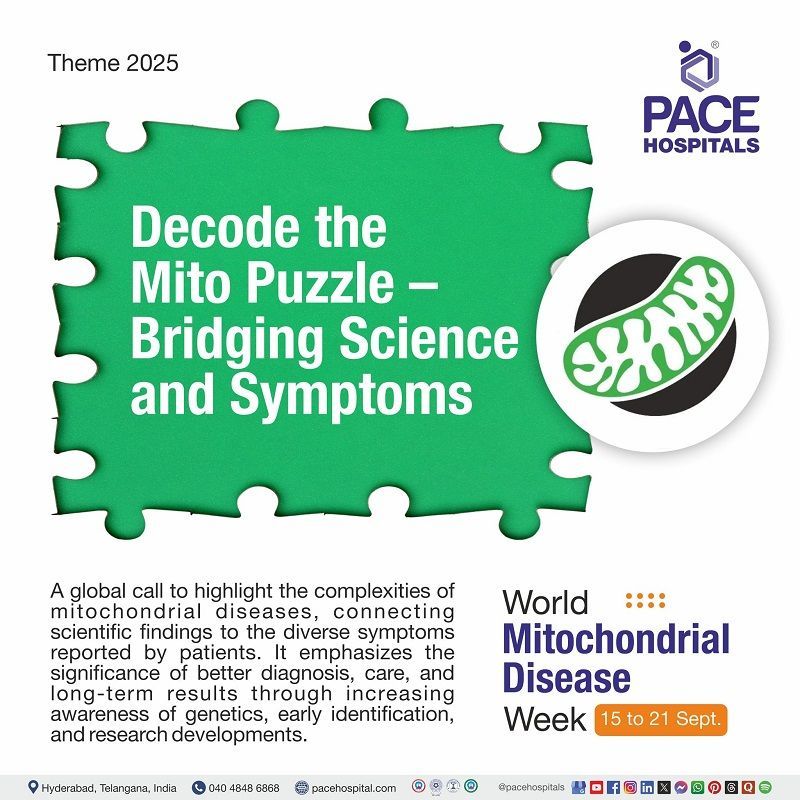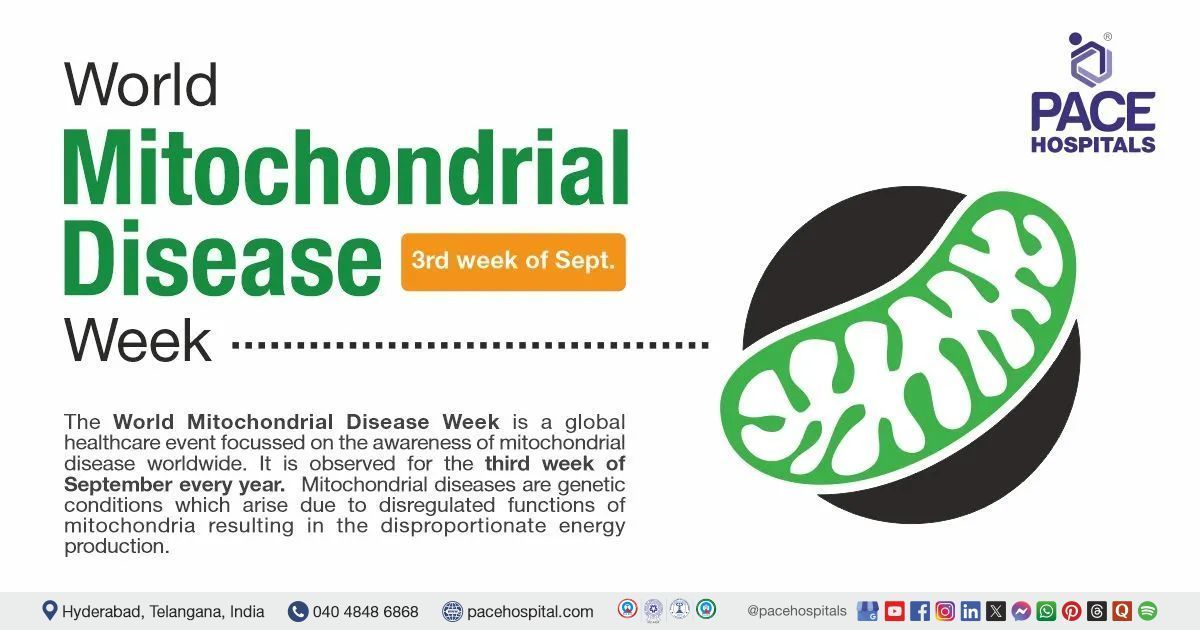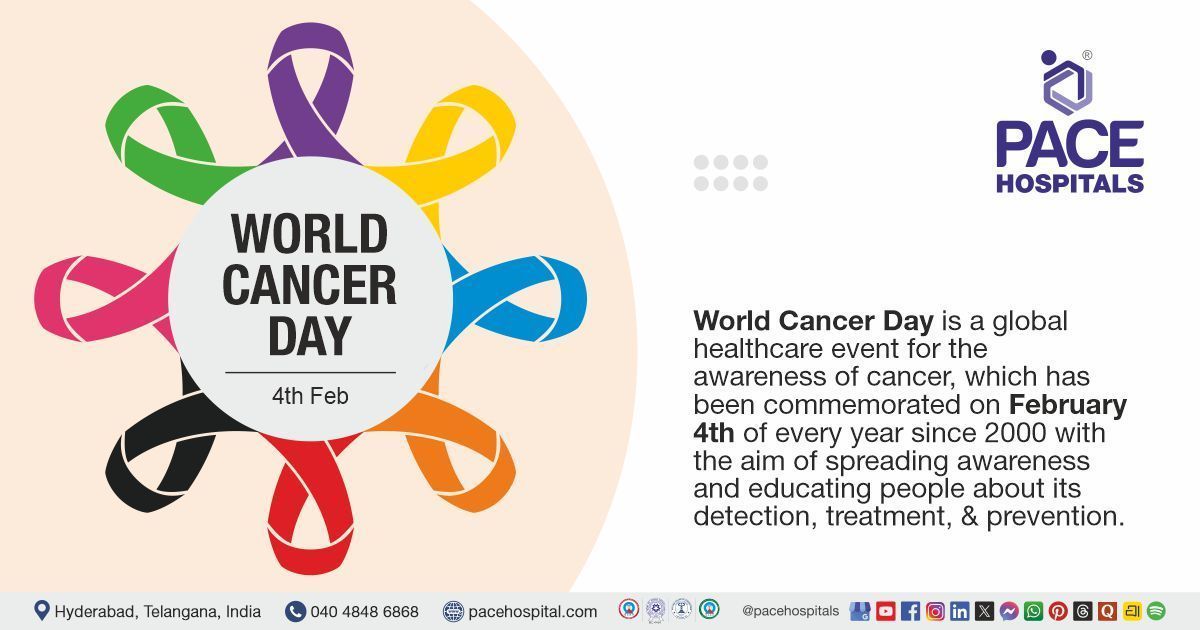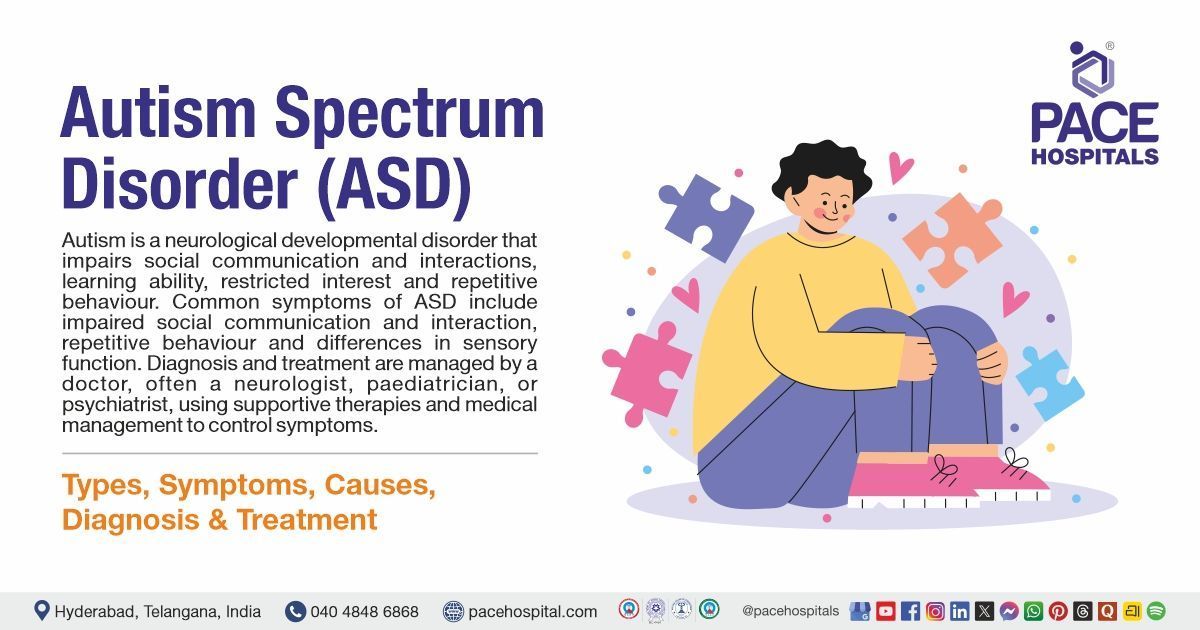World Mitochondrial Disease Week, 15-21 Sept, 2025 - Theme, Importance
PACE Hospitals
The World Mitochondrial Disease Week is a global healthcare event observed for the third week of September every year, It is focussed on invoking the awareness of mitochondrial disease on a worldwide scale. This year 2025, the World Mitochondrial Disease Week is celebrated from the 15th to 21st of September.
World Mitochondrial Disease Week has been organised by the United Mitochondrial Disease Foundation (UMDF) for more than 25 years, which played a key role in the research and education of mitochondrial disease. It also collaborated with hospitals, top clinicians, and research centres dedicated to finding answers to mitochondrial disease.
About Mitochondrial Disease - The Caliginous Disease
Mitochondrial diseases are the various conditions that disturb the work of mitochondria. Mitochondria is an organelle present in the cells which make energy. Mitochondria is the powerhouse of the cell. Disturbed mitochondrial function cannot be able to produce the necessary amount of energy for the body, affecting the functioning of the organs.
From the patient's perspective, mitochondrial disease is still relatively obscure as it has proven difficult to establish the prevalence of mitochondrial disease, predominantly due to clinical and genetic heterogeneity.
Mitochondrial disease is caused by dysregulated energy production in the mitochondria, mitochondrial diseases mushroom various types of symptoms such as daytime hypertension (the extension of high blood pressure at night into day), bilateral sensorineural hearing loss (hearing loss due to damaged inner ear or the auditory nerve), thickening of the left side of the heart, risking heart failure, chances of mitochondrial diabetes apart from muscle weakness and exercise intolerance.
The rarity of specific kinds of mitochondrial disease depends on the genetic defect, which is expressed in one in 200 people leading to a mitochondrial disease and one in 5,000 individuals could develop a serious illness. While many mitochondrial diseases are inherited, others can be a spontaneous occurrence.

World Mitochondrial Disease Week 2025 Theme
This year, 2025, the World Mitochondrial Disease Week theme is "Decode the Mito Puzzle – Bridging Science and Symptoms". The theme aims to highlight the challenges faced by people affected by mitochondrial disease (mito) and to build a community of support and understanding.
Mitochondria, often referred to as the powerhouse of the cell, play a pivotal role in energy production. However, for individuals affected by mito, this energy source becomes compromised, impacting every facet of life.
Year by year, the past themes for World Mitochondrial Disease Week
- World Mitochondrial Disease Week 2024 theme: Illuminate Tomorrow: Revitalise your energy
- World Mitochondrial Disease Week 2023 theme: Fatigue
- World Mitochondrial Disease Week 2022 theme: introducing mitochondrial disease and designing therapies for it.
Theological, Ethical, and Safety Concerns of Mitochondrial Replacement Therapy
Since there are no FDA-approved treatments for mitochondrial diseases, the scope of treatment for patients with mitochondrial diseases looks bleak. Except for avoiding triggering factors which amplify the symptoms of mitochondrial diseases, there are seldom any preventive measures.
Currently, Mitochondrial Replacement Therapy presents a promising picture. This therapy is a form of novel reproductive invitro fertilisation (IVF) working on the principle of replacing the mother’s abnormal mitochondrial DNA (mt-DNA) with the donor's healthy DNA so that a suitable chance of delivering a healthy offspring is provided.
Currently, mitochondrial replacement therapy can be done by either pronuclear transfer, maternal spindle transfer or polar body genome transfer. However, mitochondrial replacement therapy remains the subject of theological, ethical, and safety concerns.
- Theological concerns revolve primarily around the loss of human zygotes in the course of pronuclear transfer.
- Ethical concerns are in question, which comes under the status of the donor in a ‘tri-parental’ construct and the implications thereof to would-be progeny.
- Safety issues with the mitochondrial replacement therapy turn on the prospect of incompatibility between the donor mitochondria and the recipient nucleus.
- Additional safety concerns focus on the possibility of any carried-over mutant maternal DNA in derived progeny.
Share on
Request an appointment
Fill in the appointment form or call us instantly to book a confirmed appointment with our super specialist at 04048486868











